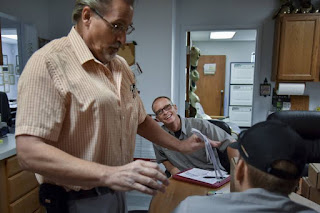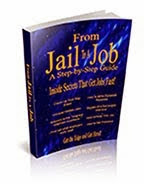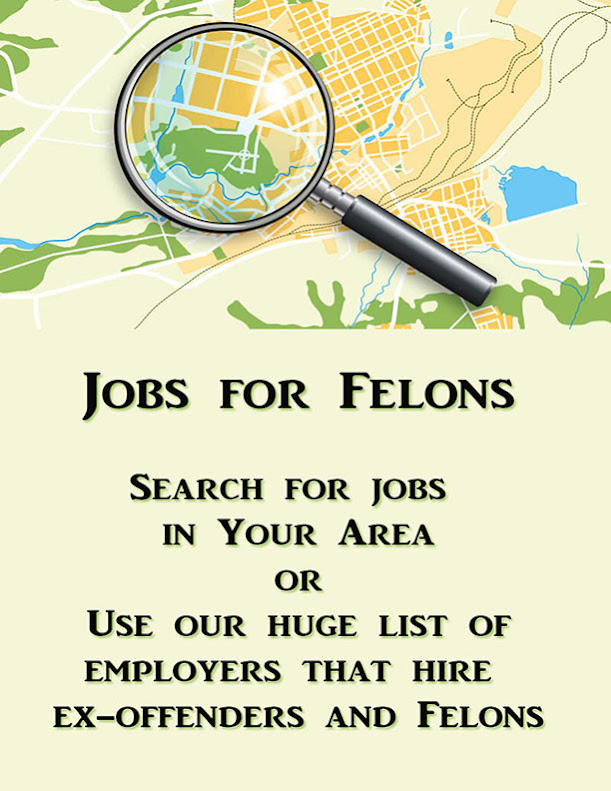Jobs for Felons: Trump wants to give ex-cons a fresh start
by Jared Meyer, Washington Examiner
In his 2018 State of the Union address, President Trump said that “we will embark on reforming our prisons to help former inmates who have served their time get a second chance.”
This sentiment directly follows what Trump promised during his inaugural address, that “we will get our people off of welfare and back to work.” People coming out of incarceration face two distinct paths—they can either find a job, or they will fall into government dependency. Beyond being the main predictor of whether someone is living in poverty, not having a job is the clearest indicator of how likely someone is to re-offend.
Yet one year after their release from incarceration, between 60 percent and 75 percent of ex-offenders remain unemployed. Rather than promoting rehabilitation and independence, states across the country severely limit the work prospects of ex-offenders through occupational licensing laws.
Most states have little oversight over how licensing agencies can treat those with criminal records, meaning agencies can consider old convictions or convictions that are unrelated to the occupation. Even worse, boards can require that applicants meet vague standards such as having “good character” or not showing “moral turpitude.” These unclear requirements give licensing boards broad discretion to prevent ex-offenders from getting work.
With the devastating opioid crisis leaving tens of thousands of individuals across the country with records, vague standards that allow boards to judge applicants’ character can serve as a major obstacle for those recovering from addiction who are seeking work in licensed occupations. Because work is a core component of recovery and has the largest positive effect of any indicator on overcoming drug addiction, states should be promoting work for these individuals, not adding barriers to recovery.
Given that there are 2.3 million people incarcerated in America—at least 95 percent of whom, or 600,000 people each year, will re-enter the general population at some point—excessive licensing regulations for those with records pose a major problem to people like Texas resident Christopher Owen.
After finding work at a home security company, Owen was denied a fire alarm installer license because of a felony burglary on his record. His offense? He had stolen a $5 pair of socks from a Goodwill drop-off trailer in 2014. This incident happened right after Owen’s home had burned down and his mother had passed away. In a brief period, he had gone from owning his own oil and gas company to being homeless. Yet none of these mitigating circumstances were considered by the Texas Department of Public Safety. A crime of $5 cost Owen a career.
There are countless other stories similar to Owen’s—each more unbelievable than the last. Perhaps the least-defensible example of overreach from licensing authorities can be found in Calvert County, Md., where a misdemeanor or a felony can automatically disqualify someone from working as a licensed fortune-teller. Many of these licensing restrictions have nothing to do with protecting public safety. And paradoxically, research has shown that broad licensing restrictions against ex-offenders endanger the public more than they protect it.
Thankfully, states are acting to lower the barriers faced by those with records. Florida State Sen. Jeff Brandes and State Rep. Scott Plakon (both Republicans) introduced a bill that would allow those in prison to apply for licenses before their release date. The reform also allows those with records to petition licensing boards to ensure that they will be approved before they invest substantial amounts of time completing government-required training. And boards for certain occupations will no longer be able to consider convictions from more than five years ago, which will no doubt help the thousands of people recovering from opioid addictions and related offenses move on from their pasts.
In Nebraska, State Sen. Laura Ebke (a Libertarian) introduced a comprehensive licensing reform bill making clear that criminal histories alone should not disqualify people from work. If this bill becomes law, Nebraska boards will no longer be allowed to consider offenses that are unrelated to safely working in a licensed occupation. This highlights another kind of overreach where licensing boards impose blanket bans, which are occupational bans for any kind of felony or misdemeanor, even when the offense is unrelated to the job. One example of this can be found in Nebraska, where those with any criminal record can be denied a massage therapy license. Similar bills to get rid of blanket bans are moving through the legislatures in Wisconsin, the District of Columbia, and New Hampshire.
President Trump’s State of the Union address highlights that being tough on crime is perfectly compatible with wanting individuals with records to find work and become independent instead of falling into government dependency, whether through welfare or re-incarceration. Work keeps ex-offenders out of poverty, allows them to gain valuable skills and experience, moves them off welfare, and helps them avoid reoffending—those are more than enough reasons for states to give them a chance at a fresh start.
Jared Meyer (@JaredMeyer10) is a contributor to the Washington Examiner's Beltway Confidential blog. He is a senior research fellow at the Foundation for Government Accountability.
Companies Hire Felons | Companies That Hire Felons | Companies That Hire Ex-offenders | Employers That Hire Ex-offenders | Employers That Hire Felons | Jobs For Felons | Jobs For Ex-offenders | Jobs That Hire Felons | Places That Hire Felons | Felon Friendly Jobs | Felon Friendly Employers | Jobs for Felons | Jobs For People That Have Felonies | Jobs For People With A Criminal Record | Donald Trump | Trump
Jobs for Felons: Trump wants to give ex-cons a fresh start
Eric Mayo
































